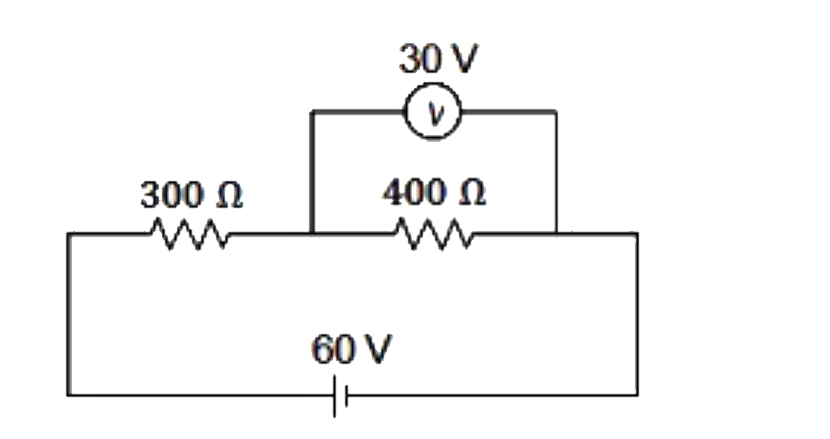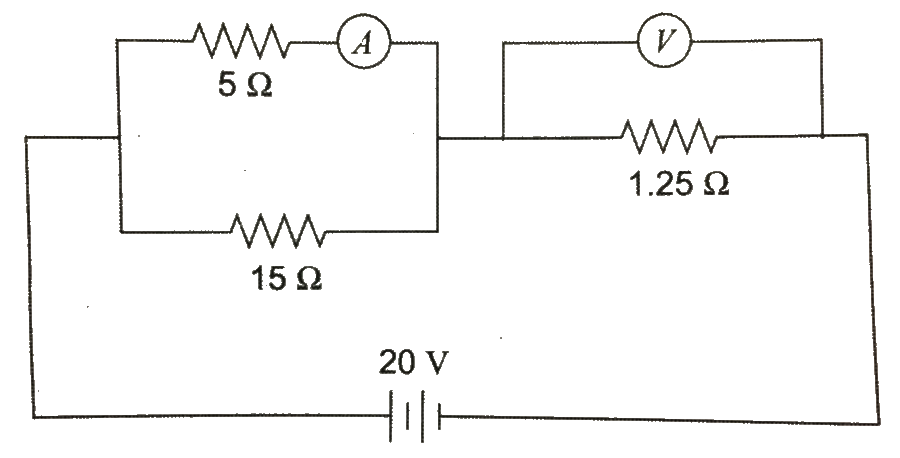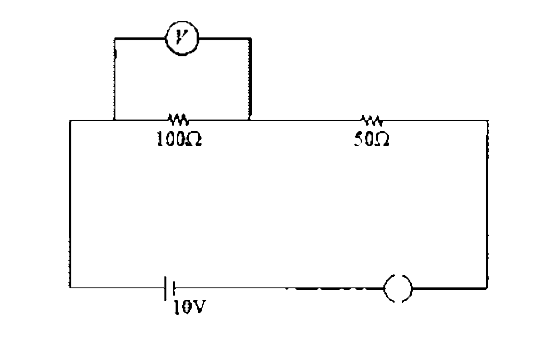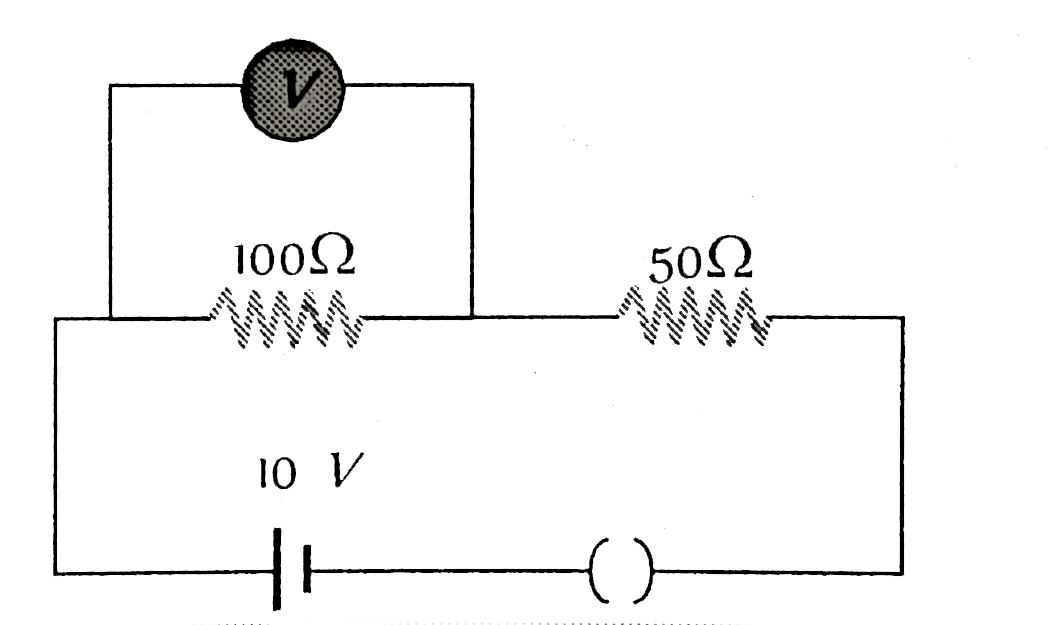The resistance of an ideal voltmeter is
A
Zero
B
Very low
C
Very large
D
Infinite
Video Solution
Text Solution
The correct Answer is:D
R→∞
|
Topper's Solved these Questions
- CURRENT ELECTRICITYBOOK - ERRORLESSCHAPTER - CURRENT ELECTRICITYEXERCISE - NCERT BASED QUESTIONS (HEATING EFFECT OF CURRENT)
67 Videos
- CURRENT ELECTRICITYBOOK - ERRORLESSCHAPTER - CURRENT ELECTRICITYEXERCISE - PAST YEARS QUESTIONS
76 Videos
- CURRENT ELECTRICITYBOOK - ERRORLESSCHAPTER - CURRENT ELECTRICITYEXERCISE - NCERT BASED QUESTIONS (KIRCHHOFF.S LAW, CELLS)
53 Videos
- ATOMIC AND NUCLEAR PHYSICSBOOK - ERRORLESSCHAPTER - ATOMIC AND NUCLEAR PHYSICSEXERCISE - Assertion and Reason
23 Videos
- ELECTROMAGNETIC INDUCTIONBOOK - ERRORLESSCHAPTER - ELECTROMAGNETIC INDUCTIONEXERCISE - ASSERTION & REASON
20 Videos
Similar Questions
Knowledge Check
Assertion (A) : An ammeter is connected in series of the current carrying circuit but a voltmeter is connected in parallel across those two points, potential difference between which is to be measured.
Reason (R) : Resistance of an ideal ammeter is zero but the resistance of an ideal voltmeter is infinite.AIf both assertion and reason are true and the reason is the correct explanation of the assertion.BIf both assertion and reason are true but reason is not the correct explanation of the assertion.CIf assertion is true but reason is false .DIf the assertion is false but reason is true.Statement I: The resistance of an ideal voltmeter should be infinite.
Statement II: Lower resistance of voltmeters gives a reading lower than the actual potential difference across the terminals.AStatement 1 is true, Statement 2is True , Statement 2 is correct explanation for Statement 1.BStatement 1 is True, Statement 2 is True, Statement 2 is NOT a correct explantion for Statement 1.CStatement 1 is True, Statement 2 is False.DStatement 1 is False, Satement 2 is True.Question Stimulus :-
The resistance of ideal voltmeter is-AZeroBVery lessCVery highDInfinite
What is the resistance of an ideal (i) ammeter, (ii) voltmeter ?
View SolutionIn the circuit figure, the voltmeter reads 30 V. The resistance of the voltmeter is

View SolutionAn ideal ammeter (zero resistance) and an idel voltmeter (infinite resistance) are connect as shows in Fig. 6.47. The ammeter and the voltmeter readings are

View SolutionIn the given circuit, the voltmeter reads SV. The resistance of the voltmeter is :

View SolutionIn the given circuit, the voltmeter records 5 volts. The resistance of the voltmeter in ohms is

View Solution
